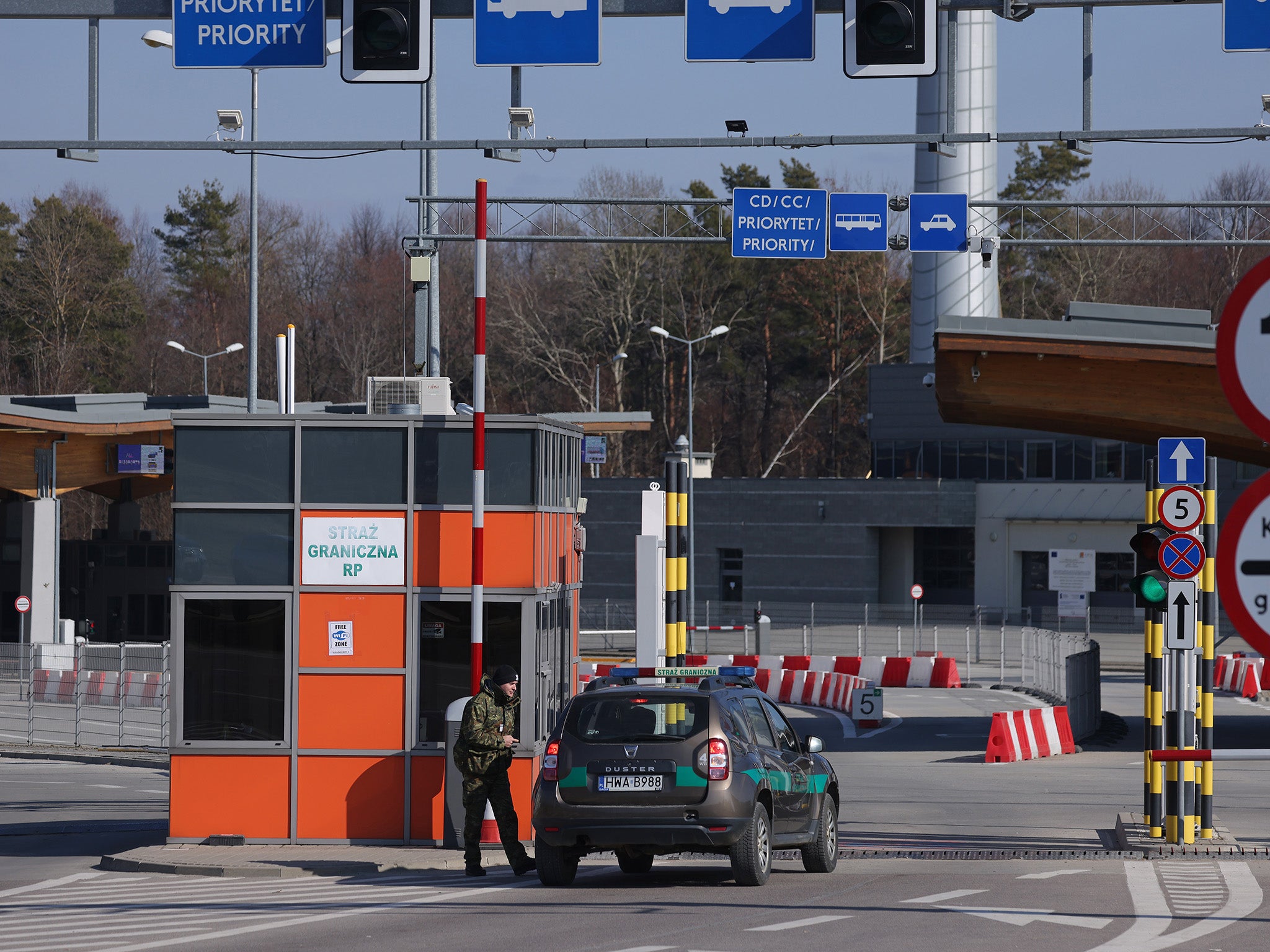Will friends visiting me in Spain need proof of stay?
Simon Calder answers your questions on visa red tape, compensation claims and whether it’s possible to visit Lviv


Q I am a non-resident homeowner in Spain. Do I have to provide a letter of invitation to visit friends who are UK passport holders?
David S
A Not a letter of invitation – it is even more bureaucratic than that. The democratic vote to leave the European Union, together with the insistence of the UK government that British travellers be treated as “third-country nationals”, has had many consequences. The obligation to provide proof of accommodation when entering the EU – and wider Schengen Area – is one of them.
The Foreign Office tells prospective visitors to Spain: “You could be asked to show you have enough money for your stay [and] proof of accommodation for your stay.” Such evidence, the FCDO says, could be “a hotel booking confirmation; proof of address if visiting your own property (such as a second home); an invitation or proof of address if staying with a third party, friends or family.”
The recommended course of action for a property owner is to apply at the local police station in Spain for a carta de invitation, for which the fee is around £70. Besides full details of you and the person and the exact relacion o vinculo (“relationship or bond”) you have with them, you must produce the title deeds to the property and specify the dates when they will be staying.
But this can only be issued to homeowners who have Spanish residency. In your case, the appropriate legal step would be to register your property as commercial tourist accommodation – involving yet more red tape and with implications for your tax status.
Some people recommend the traveller should swerve the requirement by making a cancellable booking for a hotel, printing out the confirmation and cancelling the room. I do not condone this course of action, not least because of the problems it causes to hoteliers.
In practice, I have had no reports of Spanish frontier officials asking arriving British holidaymakers for such proof; I regularly turn up with no booking. But I recognise this is taking a risk. You might want to ask a Leave voter whether they were aware of the complexity their decision would bring to travel.

Q I was one of the Tui passengers stranded in Barbados on Thursday night after a vehicle struck the plane to Gatwick. The company says we are each entitled to £520 in compensation for the delay. But given how badly we were treated staying at the airport, compared with those who were given $500 [£390] per night hotel rooms, I think we should be asking for more. Do you agree – and what is Tui likely to say?
Mark P
A It sounds like a miserable experience. After the incident, which was beyond Tui’s control, 342 passengers spent five hours on the plane going nowhere. I gather you were told you were being held on board while hotel rooms were sourced. By the time you were let out of the aircraft, it became clear that accommodation would be provided only for the pilots, cabin crew, families with young people and elderly or infirm passengers; Tui tells me that there is no truth in the rumours that premium economy customers were also found rooms.
In such a situation, the passenger can make their own arrangements (choosing the cheapest suitable accommodation) and send the bill to the airline. But Tui sent stranded passengers a message saying reimbursement for accommodation, meals and transport was limited to €180 [£153] per household.
Airlines cannot make up arbitrary caps like this. When I heard about the message, I challenged Tui, who then accepted there was no limit. However, by then it was Friday morning, and therefore Tui’s “clarification” was academic.
Unfortunately, you and your fellow passengers are the latest people to discover the hard way that when airlines do not provide accommodation for stranded passengers, there is no way of claiming the appropriate cost. Tui has confirmed it will pay out the £520 per passenger due under European air passengers’ rights rules. Credit to the company: it might have sought to defend claims on the grounds that this was an “unexpected flight safety shortcoming”.
You are also entitled to the cost of meals and (non-alcoholic) drinks you paid for during the wait. Tui also says that package holiday customers will get a voucher for future holidays worth £200 per person. But I am afraid the company will not pay any more.

Q My wife is a textile artist and we try to attend the private views for her exhibitions. She has an upcoming exhibition in Lviv, Ukraine. We were wondering if it is possible or indeed safe to travel there?
David F
A Since Russia invaded Ukraine on 24 February 2022, the western borders of the nation have remained open. Many people of Ukrainian descent cross the frontier regularly. The busiest crossing points are those west and northwest of Lviv, the motorway links from Krakow and Warsaw respectively. In addition, many people cross the far western Ukrainian city of Uzhhorod, either to and from Kosice in Slovakia or Debrecen in Hungary.
International coach companies run dozens of cross-border services every day. Today, for example, FlixBus has five coaches each way between Krakow and Lviv, taking around seven hours and costing as little as £15. To and from Warsaw, there are a further eight departures, typically taking 10 hours or more, starting at £25 one way. You can book these as quickly and easily as a FlixBus coach from Bristol to London, and simply connect from a nearby airport; Krakow has the most frequent flights from the UK.
So you could go – but should you? The Foreign Office warns against travel to Ukraine, citing a “risk of harm to British nationals from Russian attacks”. The potential hazards include “missiles and drones that hit unintended targets or from falling debris”. Standard travel insurance does not cover you for visits against FCDO advice, so you would need to find a specialist policy.
Equally, of course, you will need to consider the views of the Ukrainian authorities. Last week I talked to the tourism chief for Ukraine, Mariana Oleskiv. She stressed that visitors from abroad should stay away until the war is over, saying: “Not now. We are not inviting anybody now.”
You and your wife, though, are in a special position: she is an artist whose works are being shared with the Ukrainian people as part of a cross-cultural enterprise. If the gallery believes her presence will be beneficial, then I suggest you ask the director to write a letter to this effect. It will smooth your passage across the border – where, in my pre-war experience, formalities are brisk and no visa is required.
Email your question to s@hols.tv or tweet @simoncalder





Join our commenting forum
Join thought-provoking conversations, follow other Independent readers and see their replies
Comments